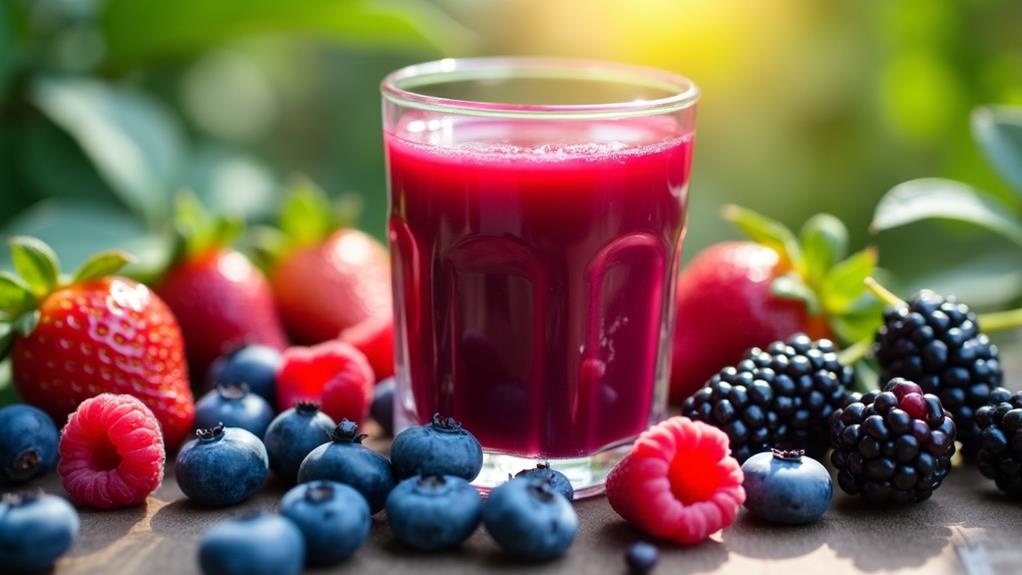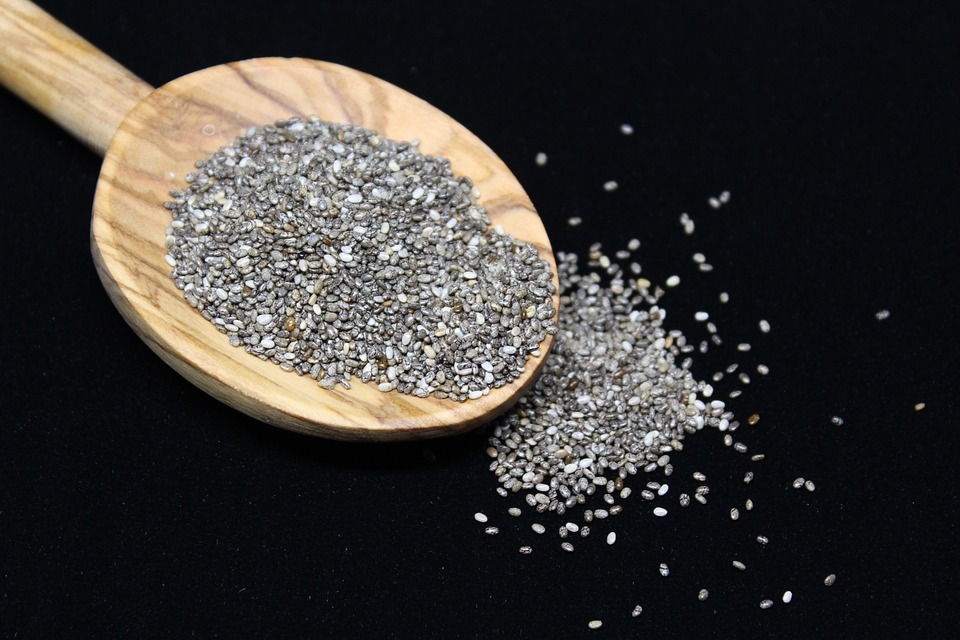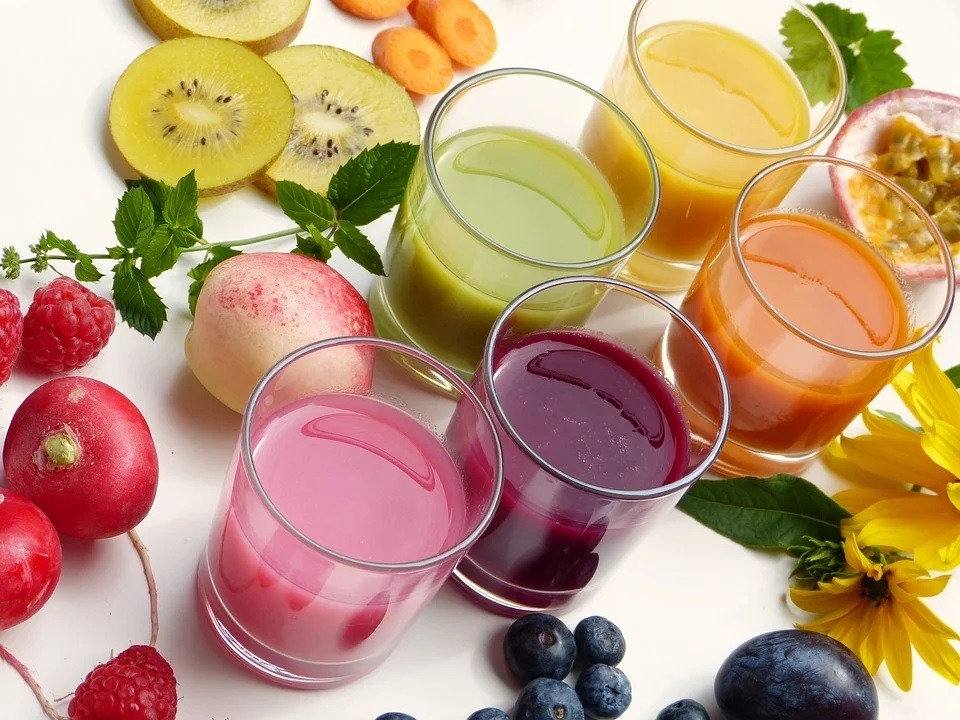Is Grape Juice Healthy? Benefits and Insights
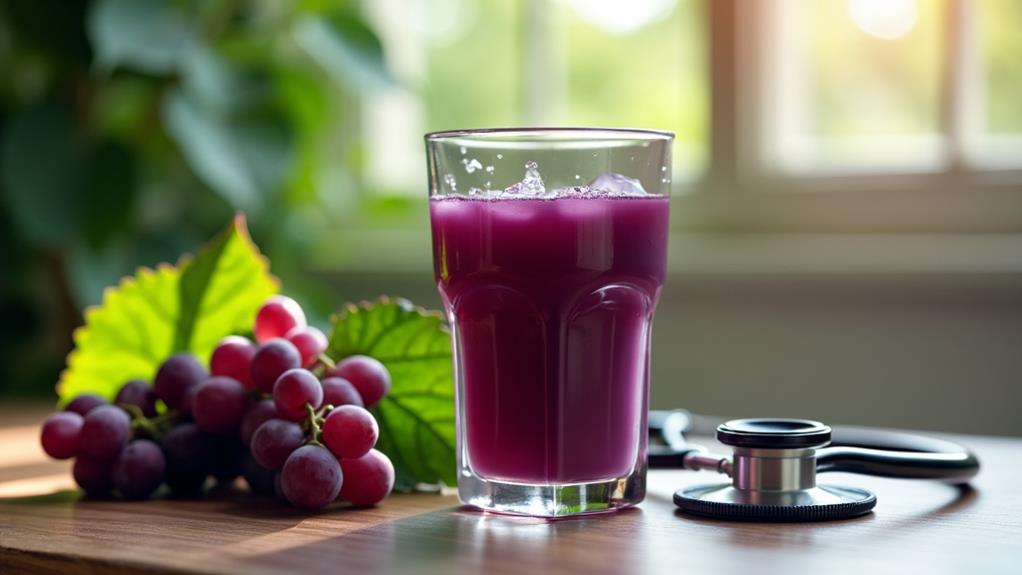
Grape juice might seem like a simple, sweet beverage, but its role in your diet warrants a closer look. It's rich in essential nutrients such as Vitamin C, antioxidants, and potassium, which can boost your immune system and support heart health. However, its high natural sugar content necessitates moderation in consumption. So, is grape juice truly a healthy choice, or are there potential drawbacks you should be aware of? Let's explore the benefits and considerations of this popular drink to determine its overall impact on your health.
Types of Grape Juice
When it comes to grape juice, there are several types to choose from, each with unique characteristics. The most common type is purple grape juice, typically made from Concord grapes. This juice is known for its dark color and robust flavor. In contrast, white grape juice, made from green-skinned grapes, tends to be slightly sweeter and is often preferred by those who like a milder taste.
When selecting grape juice, you'll encounter labels like 100% juice and juice from concentrate. 100% juice contains no additives, offering a pure, unaltered experience. Juice from concentrate, however, has had water removed during processing, creating a more concentrated beverage that requires dilution before drinking.
It's also essential to distinguish between sweetened and unsweetened grape juices. Sweetened varieties often contain added sugars such as high fructose corn syrup, which can significantly increase your sugar and calorie intake. Unsweetened juices contain only natural sugars, about 36g per cup, making them a healthier choice if you're mindful of your sugar consumption. Choose wisely based on your taste and dietary needs.
Nutritional Profile
Grape juice, often overlooked, offers a robust nutritional profile with several health benefits. One cup (237 mL) of grape juice contains approximately 152 calories, mainly from its 37.4 grams of carbohydrates, including around 36 grams of natural sugars. Despite its sweetness, grape juice is nutrient-dense.
Here's a quick look at its nutritional breakdown:
| Nutrient | Amount per cup (237 mL) |
|---|---|
| Calories | 152 |
| Carbohydrates | 37.4g |
| Protein | 1g |
| Fat | 0.3g |
Grape juice is particularly high in Vitamin C, providing about 70% of your daily value per cup, making it an excellent immune booster. It is also a good source of potassium, offering 104mg per 100g serving, which supports heart health. However, it has low fiber content compared to whole grapes.
For the best nutritional value, choose 100% grape juice and opt for unsweetened versions to avoid added sugars. While grape juice is rich in essential nutrients, consuming whole grapes can provide additional fiber and other health benefits.
Health Benefits
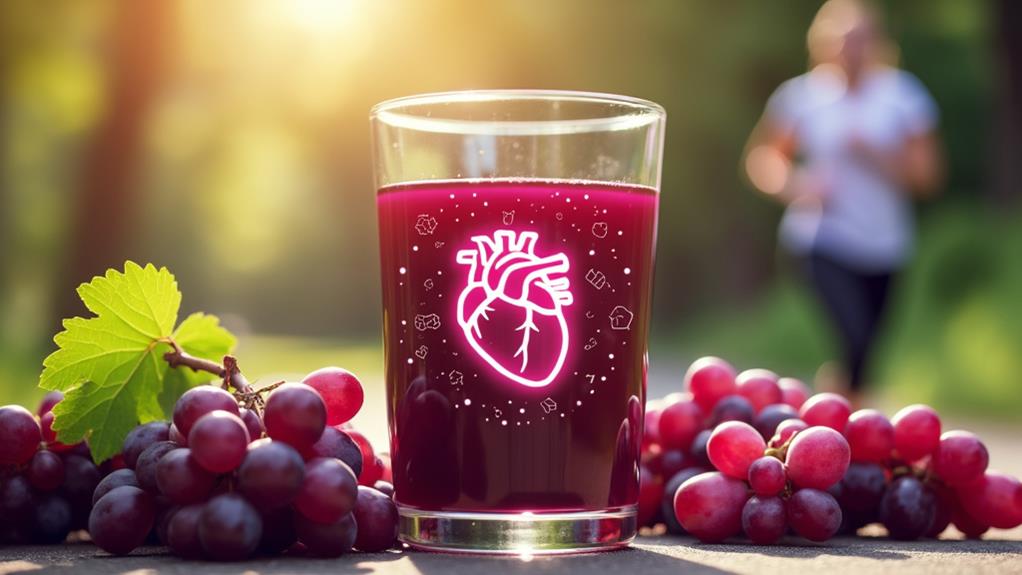
Drinking grape juice not only offers a delightful taste but also boosts your immune system with a substantial amount of Vitamin C. The antioxidants and potassium in grape juice contribute to heart health by improving cholesterol levels and reducing inflammation. Additionally, the polyphenols in grape juice support digestive health by fostering a diverse gut microbiome.
Boosts Immune Function
Grape juice significantly enhances immune function due to its high Vitamin C content, offering about 70% of the Daily Value per cup. This essential nutrient bolsters the immune system, aiding the body in effectively fighting off infections. Additionally, grape juice contains antioxidants like flavonoids and polyphenols that combat oxidative stress, thereby reducing the risk of infections and chronic diseases.
Regular consumption of grape juice promotes the growth of beneficial gut bacteria, contributing to a healthier microbiome and a stronger immune response. The natural sugars in grape juice also provide a quick energy boost, particularly beneficial when feeling fatigued or unwell.
Research indicates that the antioxidants in grape juice help reduce inflammation, a key factor in maintaining a strong immune system. Lowering inflammation also supports cardiovascular health, creating a more conducive environment for immune function. Therefore, incorporating grape juice into your diet not only offers a delicious beverage but also strengthens your body's natural defenses.
Supports Heart Health
Beyond enhancing immune function, grape juice plays a significant role in supporting heart health. Its rich antioxidant content, particularly flavonoids and resveratrol, helps lower the risk of heart disease by improving cholesterol levels and reducing inflammation.
Studies indicate that regular consumption of grape juice can enhance endothelial function, promoting better blood circulation, which is essential for overall cardiovascular health. Additionally, drinking grape juice daily has been linked to lower blood pressure levels, thereby reducing the risk of hypertension and its associated complications.
The high polyphenol content in grape juice offers robust antioxidant properties that protect heart cells from oxidative stress, potentially decreasing the risk of heart-related ailments. Enjoying unsweetened 100% grape juice in moderation can provide similar heart health benefits to red wine without the risks associated with alcohol consumption.
Here's a summary of how grape juice benefits your heart:
| Benefit | Component | Effect |
|---|---|---|
| Lower risk of heart disease | Flavonoids, Resveratrol | Improve cholesterol and reduce inflammation |
| Better blood circulation | Endothelial Function | Promote cardiovascular health |
| Reduced blood pressure | Polyphenols | Lower risk of hypertension |
| Protect heart cells | Antioxidants | Decrease oxidative stress |
| Alcohol-free option | 100% Grape Juice | Similar benefits as red wine |
Enhances Digestive Health
Regular consumption of grape juice can significantly benefit your digestive system. The polyphenols found in grape juice promote the growth of beneficial gut bacteria, enhancing overall digestive health and microbiome diversity. This is crucial for maintaining a balanced and healthy gut environment.
The natural sugars in grape juice stimulate gastric juice flow, aiding efficient digestion and improving food breakdown. Although grape juice contains about 0.5g of fiber per cup, which is less than whole grapes, this fiber still supports digestive processes when consumed in moderation.
Antioxidants like flavonoids and resveratrol in grape juice help reduce inflammation within the digestive tract. This can alleviate gastrointestinal discomfort, ensuring smoother digestive function.
Additionally, the hydrating properties and natural sugars in grape juice promote healthy bowel movements, reducing the risk of constipation. By keeping your digestive tract well-hydrated and regular, grape juice supports optimal digestive system performance. Incorporating grape juice into your diet can thus significantly improve your digestive health, making it a valuable addition to your daily routine.
Potential Risks
While grape juice offers many health benefits, it also comes with potential risks. Its high sugar content can contribute to weight gain and increase the risk of type 2 diabetes, particularly in the absence of the dietary fiber found in whole grapes. Excessive consumption may also lead to indigestion, heartburn, and allergic reactions in some individuals.
High Sugar Content
The high sugar content in grape juice poses several potential risks that deserve careful consideration. With approximately 36 grams of natural sugars per cup, grape juice can quickly contribute to excessive sugar intake if portions aren't monitored. This highlights the importance of portion control. Consuming too much can cause rapid spikes in blood sugar levels, posing a particular concern for individuals with diabetes. Additionally, sweetened varieties often contain added sugars like high fructose corn syrup, further increasing the risk of type 2 diabetes and weight gain.
Even for those in good health, regularly consuming large amounts of grape juice can be problematic. Excessive sugar intake can disrupt digestive health, leading to issues such as indigestion and nausea. Furthermore, high sugar consumption can negatively affect cholesterol levels. To enjoy grape juice without these downsides, it's advisable to limit intake to 4-10 ounces per day. This allows for the enjoyment of its health benefits without excessive sugar consumption. Thus, while grape juice can be part of a balanced diet, mindful consumption is essential.
Low Fiber Levels
Choosing grape juice over whole grapes significantly reduces your fiber intake, which can present several risks. Grape juice contains less than 0.5g of fiber per cup, while whole grapes provide about 1g of fiber per half cup. This reduction in fiber can negatively affect your digestive health and cause rapid spikes in blood sugar levels, making portion control crucial for diabetes management.
Furthermore, the lack of fiber in grape juice may not keep you as satiated as whole grapes, potentially leading to overeating due to its higher caloric density. Low fiber levels can also impact the diversity of your gut microbiome, which is better supported by the fiber found in whole fruits.
Here's a quick comparison:
| Nutrient | Grape Juice | Whole Grapes |
|---|---|---|
| Fiber (per serving) | <0.5g | 1g |
| Effect on Satiety | Lower | Higher |
| Blood Sugar Spikes | Higher | Lower |
| Gut Microbiome Support | Lower | Higher |
To maintain stable blood sugar levels and promote digestive health, it's essential to include fiber-rich foods like whole grapes in your diet, rather than relying too much on grape juice.
Allergic Reactions Possible
Although grape juice offers diverse health benefits, it can also cause allergic reactions in some individuals. If you have sensitivities to grapes or related fruits, you might experience itchiness in your mouth and throat after consuming grape juice. Symptoms can extend to gastrointestinal issues like nausea and indigestion, particularly if you drink too much. These reactions are more common in individuals with fruit allergies, especially those allergic to apples or cherries due to potential cross-reactivity.
Monitor yourself for any adverse reactions after enjoying a glass of grape juice. If you notice unusual symptoms, it could be a sign of a grape juice allergy. Those with a history of allergies to other fruits should be extra cautious, as they may be at a higher risk. Gastrointestinal issues and other health effects can be uncomfortable and worrying, but identifying the cause is the first step to managing it.
Consult a healthcare professional if you suspect a grape juice allergy. They can provide tailored advice and conduct necessary tests to confirm the allergy, helping you avoid unwanted health effects and ensure safe consumption of your favorite drinks.
Grape Juice Vs. Whole Grapes
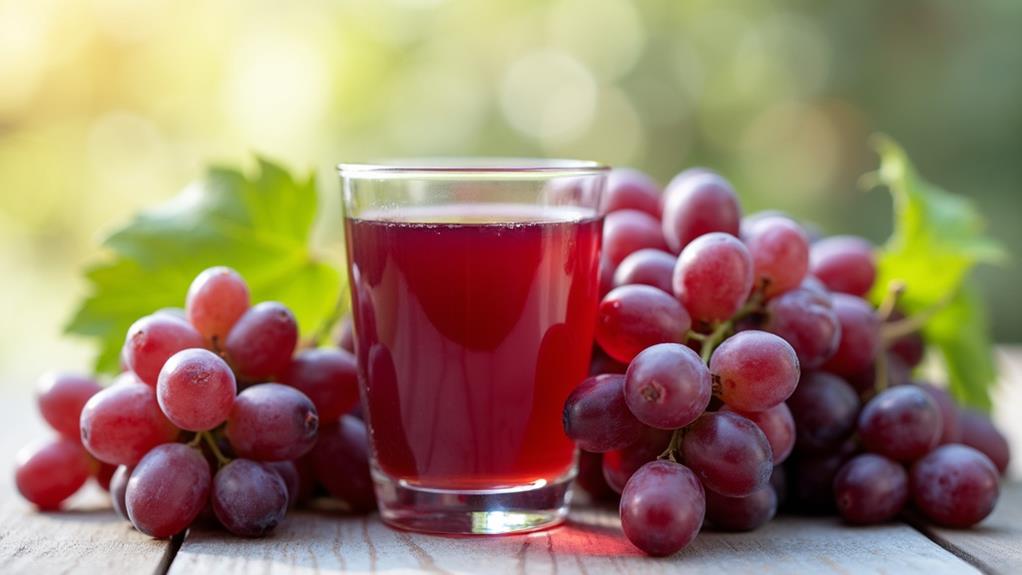
When comparing grape juice to whole grapes, it's essential to consider their distinct nutritional profiles. Whole grapes are rich in dietary fiber, which aids digestion and promotes satiety, whereas grape juice typically lacks this beneficial component due to the juicing process. Furthermore, whole grapes offer essential vitamins such as vitamin K and potassium, along with antioxidants, without the high sugar content found in grape juice.
| Nutrient Aspect | Whole Grapes (1/2 cup) | Grape Juice (1 cup) |
|---|---|---|
| Natural Sugars | 12 grams | 36 grams |
| Fiber Content | < 1 gram | Minimal |
| Caloric Content | Low | High (152 calories) |
| Important Vitamins | Vitamin K, Potassium | Vitamin C, Limited |
| Health Benefits | Better for Heart Health | Some Benefits |
Grape juice is more calorie-dense, with one cup containing approximately 152 calories, compared to the lower caloric content of 1/2 cup of whole grapes. While both options provide health benefits, whole grapes are generally healthier due to their fiber content and lower sugar concentration. Choosing whole grapes can support better heart health and help you avoid the excessive sugars and calories often found in grape juice.
Recommended Intake
Finding the right balance when consuming grape juice is crucial for reaping its health benefits while avoiding excessive sugars and calories. The recommended daily intake is between 4 to 10 ounces (118 to 296 mL). This range allows you to enjoy its taste and nutritional value without overconsumption.
Always choose 100% grape juice without added sugars to maximize health benefits like antioxidants and vitamins. Moderation is key; limiting your intake to about 1 cup (approximately 237 mL) per day can help prevent potential health issues related to high sugar consumption.
For individuals with specific health conditions such as diabetes, it's essential to monitor portion sizes and overall carbohydrate intake to avoid adverse effects on health. Incorporating grape juice as part of a balanced diet alongside whole fruits can enhance overall nutrition. By following these guidelines, you can enjoy the benefits of grape juice while maintaining a healthy lifestyle.
Consumer Education
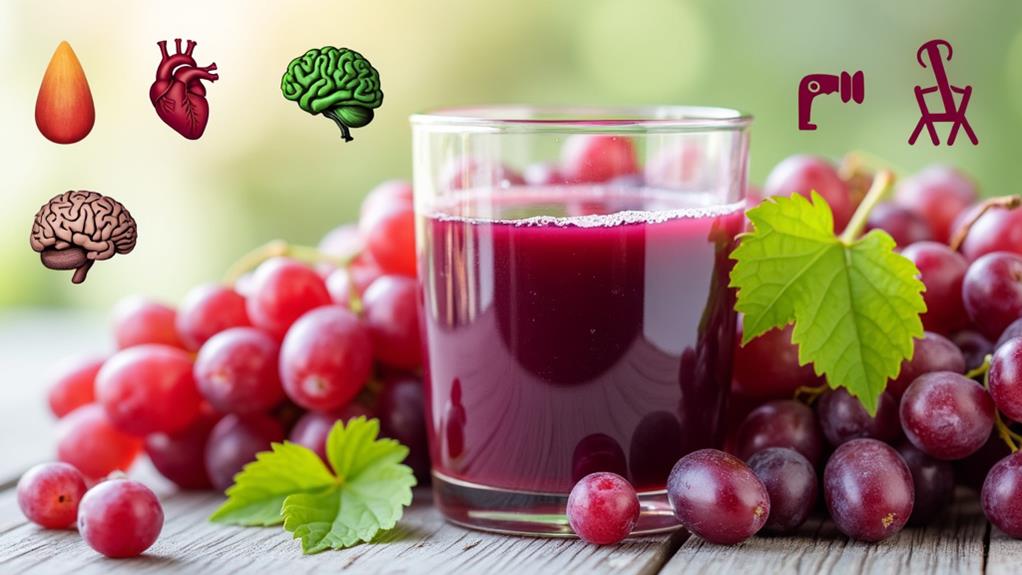
Understanding the health benefits of grape juice begins with consumer education, enabling you to make informed decisions. Not all grape juice products are equal, so always check for labels that state "100% juice." This ensures there are no added sugars or artificial ingredients that can diminish the health benefits. Awareness of sugar content is crucial; unsweetened grape juice contains about 36 grams of natural sugar per cup, which can affect blood sugar levels.
| Aspect | Grape Juice | Whole Grapes |
|---|---|---|
| Sugar Content | High (Natural Sugar) | Lower |
| Dietary Fiber | None | High |
| Added Sugars | Possible | None |
| Preservatives | Common in Store-Bought | None |
| Recommended Intake | 4-10 oz/day | As desired |
Making homemade grape juice can be a healthier alternative to commercial options, giving you control over ingredients and sugar levels. Store-bought juices often contain preservatives and additives, which you may want to avoid. Additionally, understanding the differences between grape juice and whole grapes is important. Whole grapes provide dietary fiber and have a lower calorie content, enhancing overall health benefits. By focusing on consumer education, you can make informed choices, whether you prefer grape juice or whole grapes.

